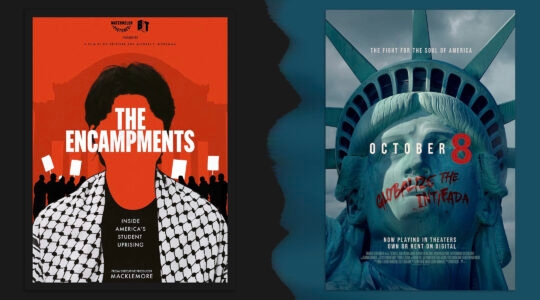To the Editor:
In reply to the article “Danish Jews ponder bleak future,” by Ben Harris, the third paragraph says: “But many of the Polish Jews were assimilated and saw little value in Jewish affiliation, and even those who joined the active Jewish community have seen their children — following the example of generations of Danish Jews before them — intermarry and drift from Jewish life in Denmark.”
Mr. Harris was presented only one side by those he interviewed. This is a great misrepresentation of Polish Jewish immigrants like me, and especially of what determined our affiliation with the traditional Danish Jewish community. Here is my story.
My father died in the ghetto of Kolomyja in Galicia. My mother escaped from the ghetto with me and survived. It was my mother who gave me my Jewish identity: Zionism and strong cultural/historical feeling, without any knowledge of the religious traditions or Yiddish, that in her family were considered obsolete.
My identity was only reinforced after 1968, when the anti-Semitic campaign in Poland made most of the remaining Jews — including my mother, my stepfather and me — leave the country.
Do I need to say that after experiencing two waves of anti-Semitic persecution in my life, I see red when somebody questions my Jewishness? Yet this is what happened after my arrival in Denmark. The key to the issue is in two words in the article: "traditional Jew."
The majority of the arriving Polish Jews were not traditional. There was no possibility to learn the religious traditions in Poland even if we had wanted to. And many did not, but still maintained their Jewishness, albeit not in the religious sense.
We were formally invited into the Jewish Community in Copenhagen, but they made it clear that we had to fit their mold (traditional religious) or mind our own business. So we did! It is not because the Danish Jews did not know any better. The Polish Jews independently created at least two organizations to maintain and cultivate their Jewishness. One was the Coordinating Committee of Polish Jews in Denmark, which I served as its chairman at the end of the ’80s and am still a member. When I was chairman we organized many meetings with the Danish Jewish Community representatives, where we tried to enter into a dialogue and establish some kind of cooperation. We even wrote a document to the leadership of the community suggesting several actions that could attract Polish Jews to the community.
Two examples of many: a Polish corner with a few Polish periodicals somewhere in the big community center, and information about the clubs and activities mailed to all potential members. There was never any response. This policy of ignoring us continued unchanged.
I gave my daughter, whose mother was a Polish Catholic, a strong Jewish identity. I took her to many Jewish events and she knew many Jewish youths.
When she was a teenager in the mid-90s, she wanted to join the community Jewish Youth organization. She was denied membership because she was “not Jewish”! Ironically, a short time later I was contacted by people from the Jewish Community asking me to join. I answered that I would join if my daughter could join their Jewish Youth Organization. They told me this was not possible.
Is it hard to understand why the Danish Jewish community is bleeding members?
A few months ago the Coordinating Committee organized a ball to commemorate 40 years since our arrival in Denmark. One of the speakers was the present chairman of the Jewish Community. He expressed regret regarding the attitude toward us by the Jewish Community in the past. That was nice to hear and he got applause. But it is much too little and probably much too late. I am pretty sure that there is nothing by now that can make my daughter seek company in the Jewish Community Center.
As for me? They make me see red.
Albert Rapp
Past chairman, Coordinating Committee of Polish Jews in Denmark
Copenhagen
JTA has documented Jewish history in real-time for over a century. Keep our journalism strong by joining us in supporting independent, award-winning reporting.





